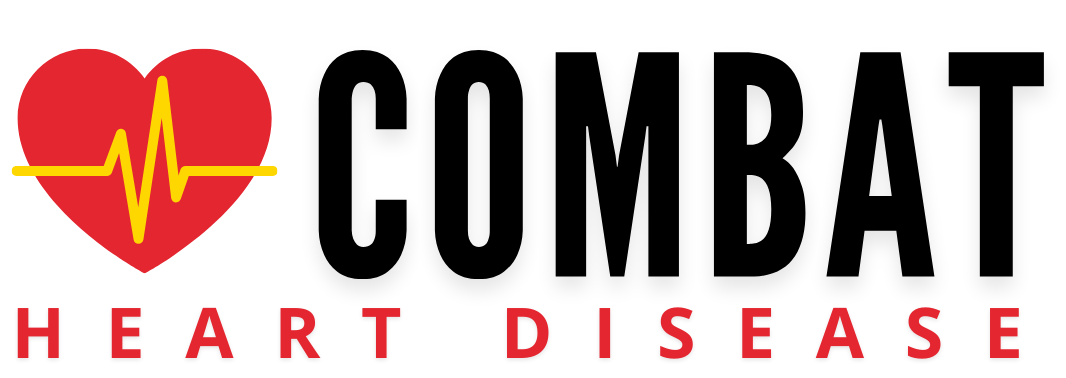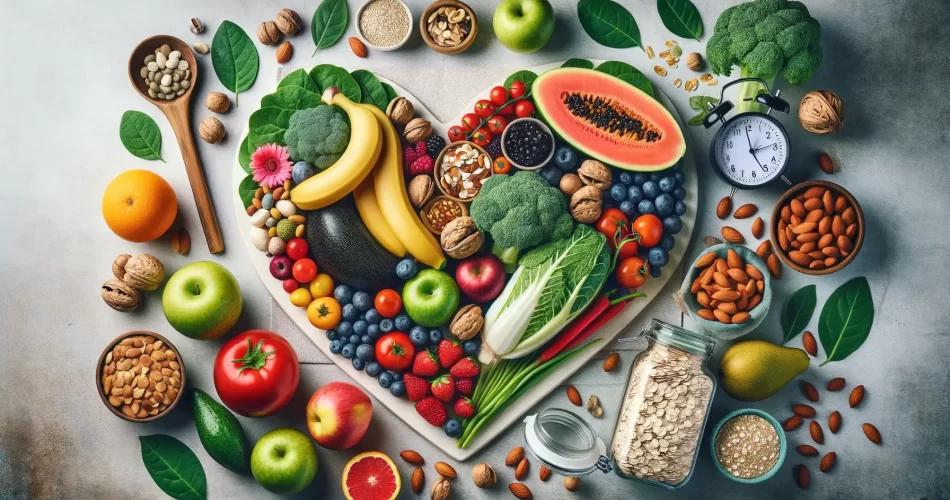Blood pressure is a common concern among people of all ages. It refers to the force exerted by blood against the walls of arteries as it flows through them. High blood pressure can lead to serious health problems such as heart disease, stroke, and kidney failure. However, there are several natural ways to lower your blood pressure, one of which is incorporating specific foods into your diet. In this blog post, we will discuss 11 foods that are known to help lower blood pressure. From berries and bananas to dark chocolate and olive oil, these foods not only taste great but also have proven health benefits. So if you’re looking for ways to improve your heart health, keep reading!
Understanding Blood Pressure
To understand how certain foods can lower blood pressure, it’s important to first understand what blood pressure is and how it is measured. Blood pressure refers to the force of blood pushing against the walls of the blood vessels. It is measured in millimeters of mercury (mm Hg) and is typically expressed as two numbers, systolic pressure over diastolic pressure. The systolic pressure represents the force when the heart contracts, while the diastolic pressure represents the force when the heart is at rest.
What is High Blood Pressure?
High blood pressure, or hypertension, occurs when the force of blood against the artery walls is consistently too high. A blood pressure reading of over 130/80 mm Hg is considered high. The systolic blood pressure, which is the top number, measures the pressure on the arteries when the heart beats. The diastolic blood pressure, or the bottom number, measures the pressure on the arteries between heartbeats.
Having high blood pressure puts a strain on the heart and blood vessels, increasing the risk of heart disease, stroke, and other health conditions. It is a silent condition, as most people with high blood pressure do not experience any symptoms. This is why it is important to regularly monitor blood pressure levels and take preventive measures to control it.
11 Foods That Lower Blood Pressure
Berries, bananas, leafy green vegetables, beets, garlic, oats, dark chocolate, citrus fruits, pomegranates, seeds and nuts, and olive oil are all foods proven to lower blood pressure. The United States Department of Agriculture recommends consuming these potassium-rich foods as part of a balanced diet to maintain healthy blood pressure levels. Additionally, incorporating vegetable nitrate intake through foods like beets and leafy greens has been linked to reduced risk of heart disease and may aid in blood pressure control. Yogurt, particularly unsweetened varieties, is also a beneficial food for lowering blood pressure due to its high levels of calcium, potassium, and magnesium. Consider adding it to your diet as a healthy breakfast or snack option.
1. Beets
Beets offer a natural way to lower blood pressure by being high in nitric oxide, promoting blood vessel relaxation and improved blood flow. The dietary nitrate found in beets is beneficial for reducing the risk of heart disease and lowering blood pressure. Additionally, beets are a good source of potassium, essential for regulating blood pressure. Regular consumption of beet juice has been associated with decreased systolic blood pressure. Including beets in the diet can contribute to a comprehensive approach to managing high blood pressure.
2. Seeds and Nuts
Seeds and nuts contain high amounts of magnesium, a mineral essential for regulating blood pressure. Including these in your diet is a healthy choice for lowering blood pressure. The healthy fats found in seeds and nuts are crucial for a balanced diet aimed at reducing blood pressure levels. Regular consumption of seeds and nuts may contribute to maintaining lower blood pressure. Additionally, seeds and nuts serve as a heart-healthy snack, supporting efforts to lower blood pressure.
3. Dark Chocolate
Dark chocolate, abundant in flavonoids, aids in blood vessel dilation, effectively lowering blood pressure. Its daily consumption in small amounts may contribute to reduced blood pressure levels. The antioxidants present in dark chocolate are beneficial for heart health and can assist in lowering blood pressure. When included in a balanced diet, dark chocolate offers significant health benefits, including the reduction of high blood pressure. Considered a part of a dietary approach to lower blood pressure, dark chocolate should be consumed in moderation.
4. Pomegranates
Pomegranates are a heart-healthy choice due to their link with lower systolic blood pressure levels. Their high antioxidant content may also reduce heart disease risk. Additionally, the potassium in pomegranates contributes to blood pressure regulation, making them beneficial for controlling high blood pressure levels. Consumption of pomegranates as part of a balanced diet can aid in disease control and support healthy blood pressure levels.
5. Citrus Fruits
Citrus fruits, like oranges and grapefruits, offer high levels of vitamin C, associated with reducing blood pressure. Regular consumption of these fruits supports a healthy diet for lowering blood pressure. The potassium found in citrus fruits contributes to regulating blood pressure. Including citrus fruits in your diet becomes part of lifestyle changes aimed at lowering blood pressure. As a heart-healthy choice, citrus fruits, including kiwifruit, play a vital role in supporting lower blood pressure.
6. Oats
Oats, being rich in fiber, have been linked to reduced blood pressure levels. The specific type of fiber present in whole grains like oats has been associated with the potential to lower blood pressure. Integrating oatmeal into a heart-healthy diet plan can contribute to lowering blood pressure gradually. Including oats in one’s regular diet is part of a lifestyle change aimed at reducing high blood pressure levels. This simple dietary adjustment aligns with the United States Department of Agriculture’s recommendations for a healthy eating pattern.
7. Garlic
Garlic, known for containing allicin, has been proven to effectively lower blood pressure levels. Its consumption can contribute to overall heart health by reducing diastolic blood pressure. Incorporating garlic into a healthy eating plan is a simple way to regulate blood pressure and can be part of lifestyle modifications for older adults. While garlic supplements may modestly reduce blood pressure, additional research is necessary to establish its efficacy in disease control.
8. Olive oil
Regularly incorporating olive oil into your diet can help lower systolic blood pressure levels, making it a key aspect of the heart-healthy Mediterranean diet associated with reduced blood pressure. The monounsaturated fatty acids in olive oil, as well as those found in fatty fish like salmon, are part of an effective eating plan for managing blood pressure. Embracing olive oil and fatty fish as part of a balanced diet and lifestyle adjustment supports lower blood pressure levels, contributing to overall cardiovascular health.
9. Leafy Green Vegetables
Eating at least 1 cup of green leafy vegetables daily can lower blood pressure and reduce the risk of cardiovascular disease, according to 2021 research. Spinach and kale, high in potassium, aid in sodium excretion by the kidneys. Dietary nitrate in these vegetables relaxes blood vessels, lowering blood pressure, while the magnesium content contributes to overall health and blood pressure regulation. The high potassium levels offset sodium’s effects, effectively lowering blood pressure levels as part of a balanced diet for disease control. Some examples of leafy greens that may help lower blood pressure include Swiss chard and spinach, which are both rich sources of potassium and magnesium. For instance, 1 cup (175 grams) of cooked Swiss chard delivers 20% and 36% of your daily potassium and magnesium needs, respectively.
10. Bananas
Bananas play a crucial role in supporting heart health and regulating blood pressure due to their high potassium content. By incorporating bananas into a balanced diet, individuals can benefit from improved overall health and blood pressure regulation. The potassium in bananas counteracts the effects of sodium, thereby contributing to the regulation of blood pressure levels. Consuming a medium-sized banana daily is a valuable addition to a heart-healthy eating plan and can serve as a convenient and nutritious snack for individuals focusing on heart health and blood pressure control.
11. Berries
Berries such as blueberries, raspberries, and strawberries are packed with antioxidants, which can help reduce the risk of heart disease. Additionally, they are rich in vitamin C, fiber, and phytonutrients, all of which support overall health. Regular consumption of berries has been linked to lower blood pressure levels and improved heart health. Including a variety of berries in the diet contributes to a heart-healthy eating plan, making them a delicious and nutritious addition for disease control and blood pressure management.
Frequently Asked Questions
What foods are bad for blood pressure?
Foods high in sodium, like processed and canned foods, can elevate blood pressure. Avoid saturated fats found in fatty meats and full-fat dairy products as they can have a negative impact. Sugary treats and drinks with added sugars can also contribute to high blood pressure.
What is the number 1 fruit to lower blood pressure?
Bananas stand out as a top contender for reducing blood pressure due to their high potassium content. In addition to bananas, berries, citrus fruits, and watermelon are also beneficial choices. Including a variety of fruits in your diet can positively impact blood pressure management.
What food lowers blood pressure quickly?
Leafy greens like spinach and kale, along with berries, bananas, and oats, are known to swiftly lower blood pressure. Foods high in potassium such as sweet potatoes and avocados, as well as those rich in magnesium like nuts and seeds, can contribute to a rapid reduction in blood pressure.
Do bananas lower blood pressure?
Bananas may help reduce blood pressure as they are rich in potassium, aiding in sodium balance within the body. Including bananas in a heart-healthy diet can support overall cardiovascular wellness. It’s advisable to consume bananas along with a variety of fruits and vegetables for optimal blood pressure management.
What is the fastest way to lower blood pressure naturally?
Reduce your sodium intake by avoiding high-salt foods. Incorporate potassium-rich foods like bananas and spinach. Stay active with regular exercise to help lower blood pressure. Manage stress through meditation or deep breathing techniques.
Conclusion
Incorporating these blood pressure-lowering foods into your diet can have a significant impact on your overall health. Berries, bananas, leafy green vegetables, beets, garlic, oats, dark chocolate, citrus fruits, pomegranates, seeds and nuts, and olive oil are all delicious additions to any meal or snack. By making simple changes to your eating habits, you can take control of your blood pressure and reduce the risk of developing hypertension. Remember, maintaining a balanced diet that includes these foods is just one part of a healthy lifestyle. Regular exercise and stress management are equally important in maintaining optimal blood pressure levels. Take charge of your health today and start incorporating these blood pressure-lowering foods into your diet.




